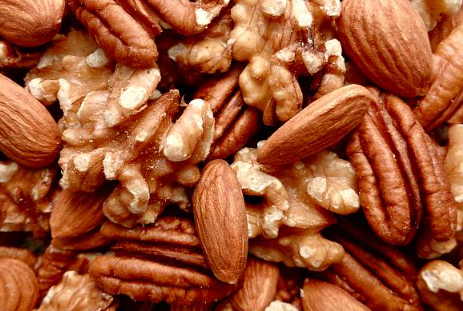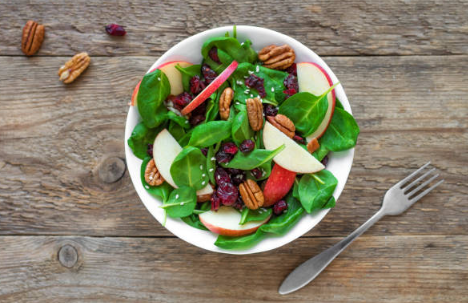Nuts are one of nature’s most perfect snacks. They’re satisfying, nutrient-dense, and packed with flavor—all while helping you steer clear of less healthy options.
While all nuts are rich in antioxidants like polyphenols and vitamin E, their long-term health benefits can vary. Pecans and walnuts are two of the most popular nuts—but how do they compare nutritionally, and which one is better? Let’s break it down.

Pecans vs. Walnuts: Key Differences
Both walnuts and pecans are loaded with heart-healthy fats, fiber, magnesium, and potassium, but they differ in a few notable ways:
-
Flavor: Walnuts have a slightly bitter, earthy flavor, while pecans are known for their buttery sweetness.
-
Appearance: Pecans are longer and darker brown with a smooth shell, while walnuts are round, light brown, and look—fittingly—like miniature brains.
-
Price: Walnuts tend to be more expensive but also have a longer shelf life.
Walnut Nutrition & Benefits
Walnuts have long been called the “royal nut,” even dating back to the Byzantine Empire. According to USDA data, a 1-ounce serving of walnuts provides:
-
Calories: 185
-
Fat: 18.5 g
-
Saturated Fat: 1.7 g
-
Carbohydrates: 3.9 g
-
Fiber: 1.9 g
-
Protein: 4.3 g
-
Cholesterol: 0 mg
-
Sodium: 0.6 mg
-
Calcium: 27.8 mg
-
Magnesium: 44.8 mg
-
Iron: 0.8 mg
-
Potassium: 125 mg
Key health perks:
-
Rich in alpha-linolenic acid (ALA), a plant-based omega-3 fatty acid essential for brain health.
-
Helps reduce LDL (“bad”) cholesterol and raise HDL (“good”) cholesterol.
-
Highest antioxidant content among tree nuts—most concentrated in the papery skin.
-
May support gut health by increasing beneficial bacteria in the digestive tract.
Walnuts are highly versatile and pair well with both sweet and savory dishes. They’re an excellent plant-based source of protein and omega-3s.

Pecan Nutrition & Benefits
Pecans are smooth, rich, and deliciously buttery. Here’s what you’ll get in 1 ounce of pecans, per USDA:
-
Calories: 196
-
Fat: 20 g
-
Saturated Fat: 1.8 g
-
Carbohydrates: 3.9 g
-
Fiber: 2.7 g
-
Protein: 2.6 g
-
Cholesterol: 0 mg
-
Sodium: 0 mg
-
Calcium: 19.8 mg
-
Magnesium: 34.3 mg
-
Iron: 0.7 mg
-
Potassium: 116 mg
What makes pecans special:
-
High in monounsaturated fats—great for managing cholesterol levels and promoting heart health.
-
Contain flavonoids, phenolic acids, and tannins, antioxidants that may help reduce inflammation and lower the risk of chronic diseases like cancer and Alzheimer’s.
-
Naturally low in carbs and glycemic index, making them a smart snack for blood sugar control and weight management.

So, Which One’s Healthier?
There’s no one-size-fits-all answer. It depends on your goals and preferences:
| Goal | Go with… |
|---|---|
| More protein & omega-3s | Walnuts |
| More fiber & lower carbs | Pecans |
| Heart health | Both—they offer different benefits |
| Blood sugar balance | Pecans |
| Weight management | Walnuts (lower in calories, higher in protein) |
Both are great additions to a balanced diet and are packed with antioxidants, heart-healthy fats, and nutrients that help you feel full and satisfied.
When to Use Each Nut
Here’s how to decide which nut to reach for depending on your recipe:
Roasting:
Both nuts develop deeper flavor when toasted. Add spices, roast for snacking, or crush for crispy coatings on chicken or veggies. Also great on charcuterie boards.
Salads:
Walnuts shine here thanks to their extra protein and fiber, which help you feel full longer.
Baking:
Both are excellent. Use walnuts in brownies or chocolate chip cookies for a bold crunch. Pecans work beautifully in granola bars or homemade trail mix for buttery sweetness.
Snacking:
Either works—it’s all about personal preference. Both are shelf-stable, portable, and packed with flavor and energy.
Nut butters:
Walnut butter tends to win here with its smooth texture and deep, earthy flavor. Spread on toast, drizzle over oatmeal, or just eat by the spoonful.
Final Takeaway
Walnuts offer more protein and omega-3s, while pecans are higher in fiber and have a slightly lower carb content. Both are full of healthy fats, antioxidants, and essential vitamins and minerals.
Whether you’re a long-time nut lover or just starting to add more plant protein to your diet, you can’t go wrong with either. Just remember: enjoy in moderation to avoid excess calories or digestive discomfort.